A strong operation began yesterday in the prisons of Honduras.
The military police of the Central American country took control of the prisons in order to dismantle the criminal gangs that operate from there.
LOOK: 3 keys to understanding the curfew imposed in Honduras after the brutal murder of 21 people in one day
In the images, distributed by the government led by Xiomara Castrohundreds of prisoners appear, tattooed and barefoot, sitting with their hands behind their heads, while they are watched by the military.
The portrait recalls the gang members from the neighboring country, El Salvador, who in February of this year were transferred to the mega-prison inaugurated by the president Nayib Bukele.
According to the Secretary of State for National Defense of Honduras, Jose Manuel Zelaya Rosalesthe operation – called “Faith and Hope” – intends that these centers “stop being schools of crime.”
“Our mission is to defeat organized crime that is in jails,” he said through his Twitter account.
Honduran officials seized weapons, satellite phones, grenades and drugs, among other things, from the prisoner’s cells. The plan is for the Armed Forces to have control of the prisons for one year.
The military action occurs days after 46 inmates burned and shot to death in a riot between, allegedly, members of the rival gangs Barrio 18 and Mara Salvatrucha, in a prison near Tegucigalpa, the capital of Honduras.
Castro described the riot as a “monstrous murder of women”dismissed the Minister of Security and appointed an oversight board for the prison.
The intervention also occurs after a particularly violent weekend: only on Saturday, 21 people were killed. 13 of them were victims of a massacre inside a pool hall in the municipality of Choloma, in the north of the country.
After these dramatic episodes, the president promised to take “strict measures.”
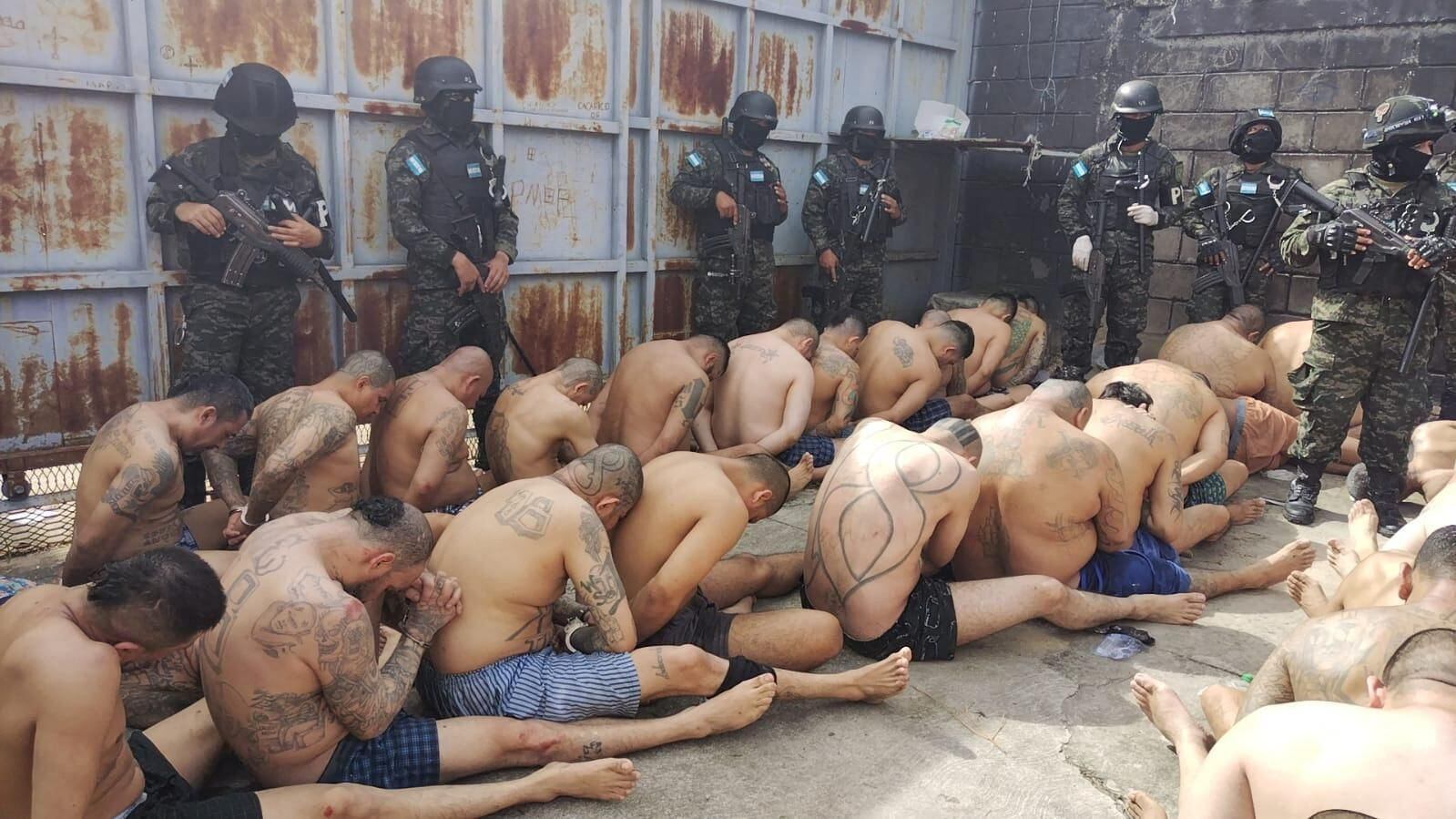
Curfew
As expected, violence is one of the most complex challenges for Xiomara Castro.
Under intense pressure from citizens who demand more security, the president is trying to control organized crime through various measures.
In addition to the military intervention in the prisons, his government decreed on Sunday a curfew from 9:00 pm to 4:00 am for the cities of Choloma and San Pedro Sula (one of the largest in the country), which have been strongly affected by the violence.
This restriction was imposed for 15 days that can be extended.
Much of the country is also under Exception statusa measure that has been in force since December 6 of last year and that has been extended three times (the last one on May 21, when it was extended for another 45 days).
The president is also carrying out a police operation, called “Sula Valley Padlock”, that seeks to control violence in the northern part of the country and recover the areas taken over by the gangs.
The offensive includes rewards for those who facilitate the capture of the perpetrators of the crimes.
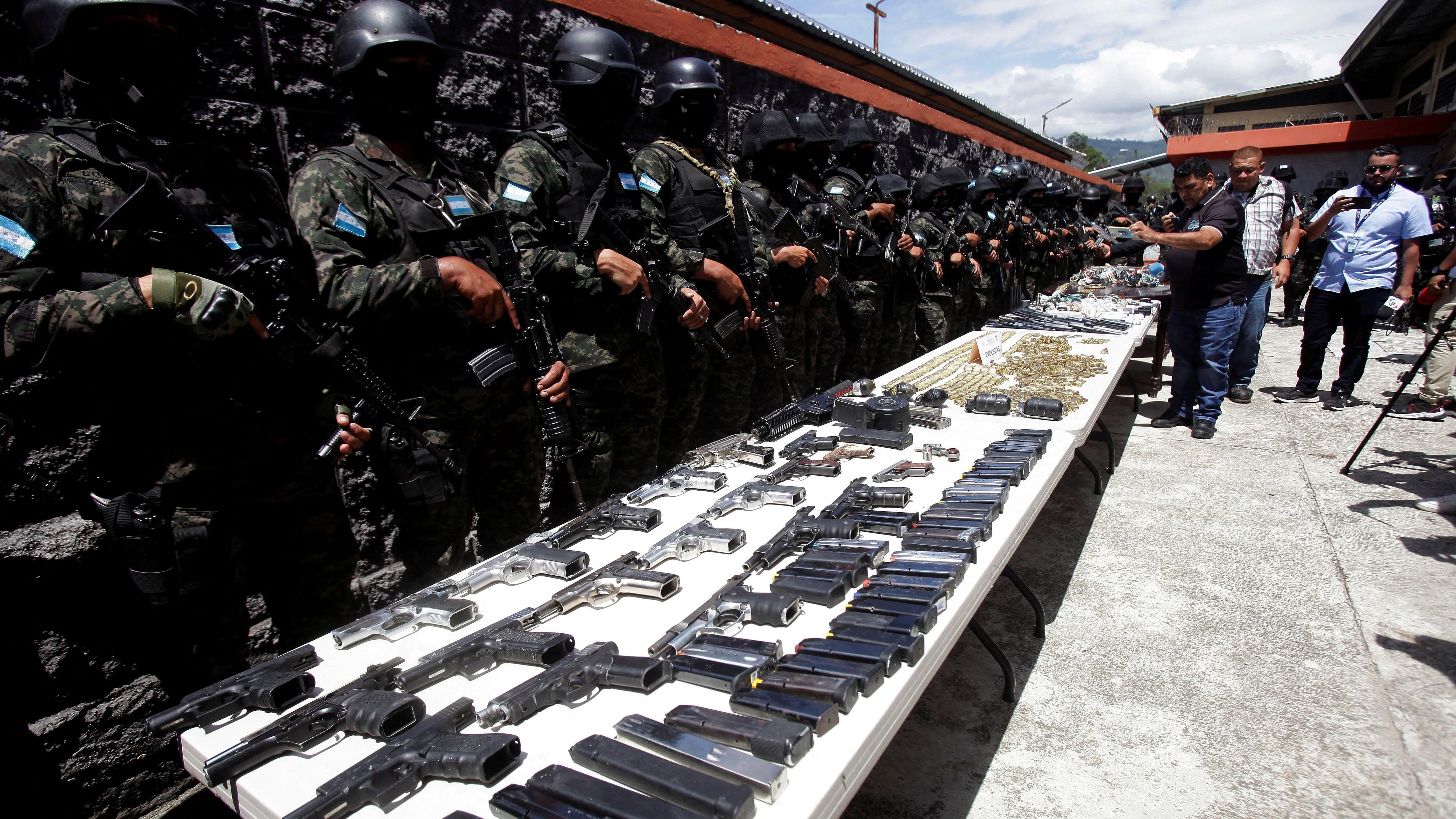
questions
The measures have been criticized by some human rights organizations.
In conversation with BBC Mundo, Evelyn EscotoCommissioner of the National Center for the Prevention of Torture, Cruel, Inhuman or Degrading Treatment of Honduras, affirmed that the militarization of prisons is a “involution from the perspective of human rights”.
“It worries us because we are not an island country, we have many obligations and commitments in international rights and we are obliged to guarantee those rights in prisons,” he said.
Cesar Muñoz, associate director for the Americas at Human Rights Watch, agreed that the measure is a setback.
“It is essential to reduce overcrowding, given that guards are unable to control overcrowded prisons, as well as to reduce the use of preventive detention, which in Honduras covers almost half of the prison population, and to guarantee decent conditions and opportunities employment and education for the inmates,” said Muñoz.
For her part, the director for the Americas of Amnesty International, Erika Guevarapointed out that the Castro government, “in a total Bukelist display of punitive populism,” was replicating “failed security policies that only deepen a context of human rights crisis.”
“The false dilemma between security and rights has taken a heavy toll on us in the region,” he added through his Twitter account.
Regarding the curfew and state of exception, Evelyn Escoto believes that with this the “background issue” is not being fixed.
“This must be solved with policies. We have problems with drug trafficking, extortion, gangs… and each crime has its own articulations and should be attacked in a different way,” he said.
The commissioner warned that arrests are being made in some areas “on mere suspicion”
“There is a stigmatization towards people,” he said.
However, according to the Honduran authorities, the state of emergency has allowed identify and capture gang members who profit from other crimes such as arms and drug trafficking, vehicle theft, femicides and money laundering.
On these criticisms, BBC Mundo has requested a reaction from the Honduran government.
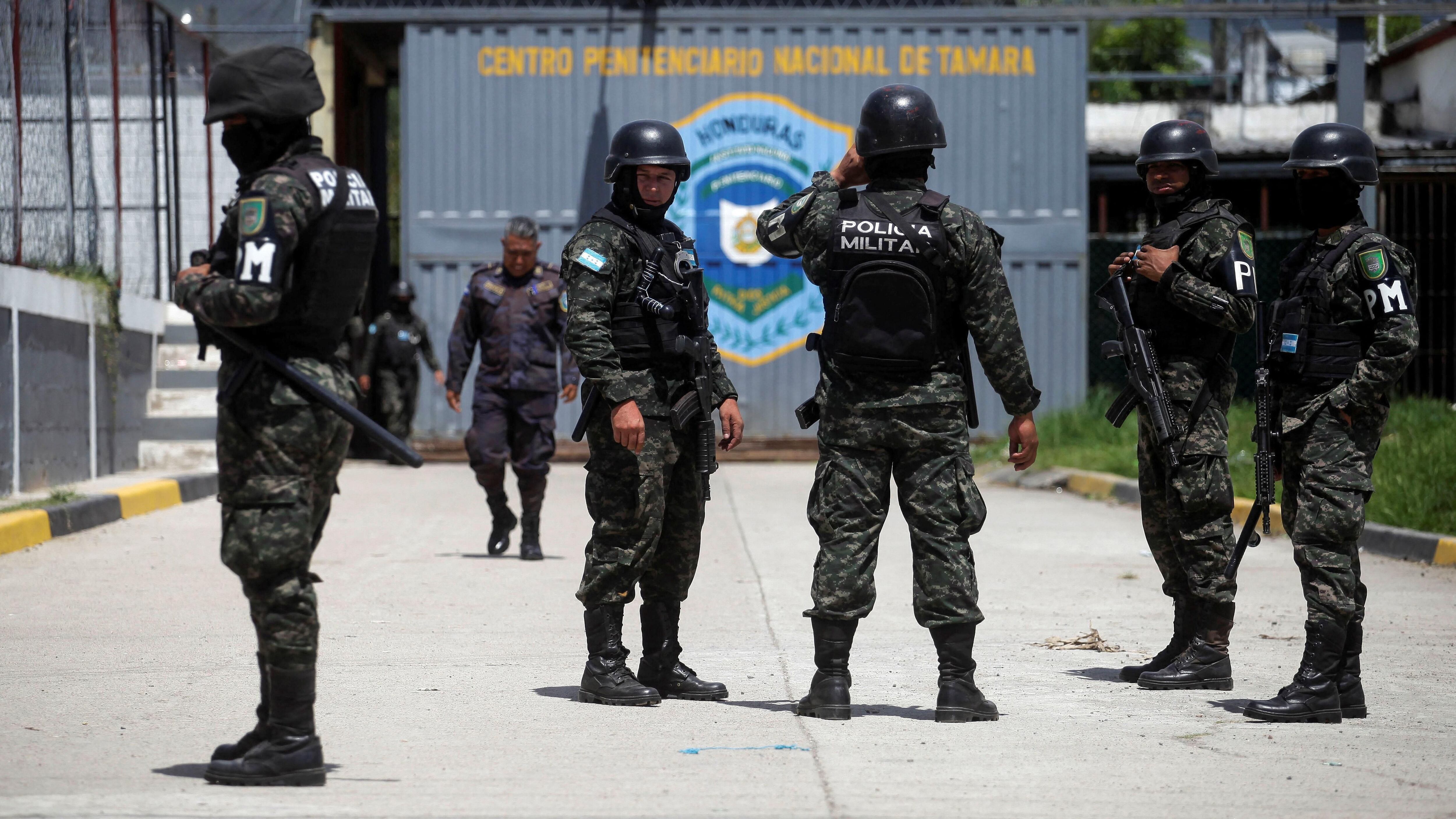
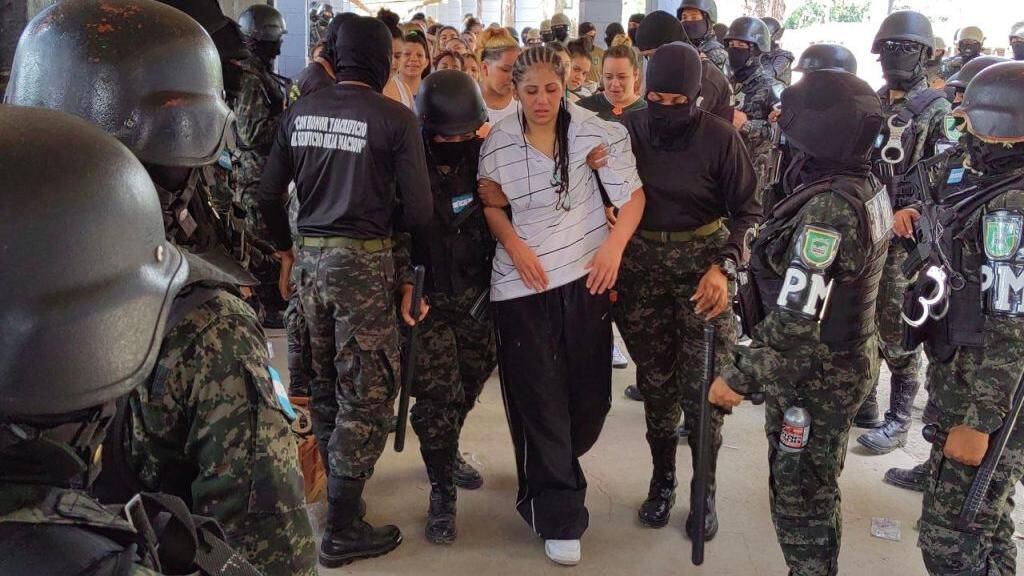
“Bukele effect”
All this is taking place in the context of the war against gangs being carried out by the president of El Salvador, Nayib Bukele, and whose country shares a border with Honduras.
Historically, El Salvador and Honduras they have had some of the highest murder rates in the world and their inhabitants have suffered from years of insecurity.
El Salvador has been under a exception regime questioned by human rights organizations but applauded by most Salvadorans for reducing crime and homicides, according to government data.
Bukele’s popularity also reaches broad Honduran sectors that look favorably on how the neighboring president is leading the war against the gangs.
“Bukele is highly valued in Honduran society and there are broad sectors of the citizenry that clamor for leadership like Bukele’s in the country. That he put order, that he impose himself, that the criminals fear him, ”he told BBC Mundo Eugenio Sosa, Sociologist from the National Institute of Statistics of Honduras.
For Sosa, the military intervention in prisons (and the subsequent distribution of the images by the government) is part of the “Bukele effect” in the region.
“What is being done in El Salvador puts pressure on the Honduran rulers who, seeing that some things are working in the neighboring country, have the motivation to develop aspects similar to the Bukele model,” says the sociologist.
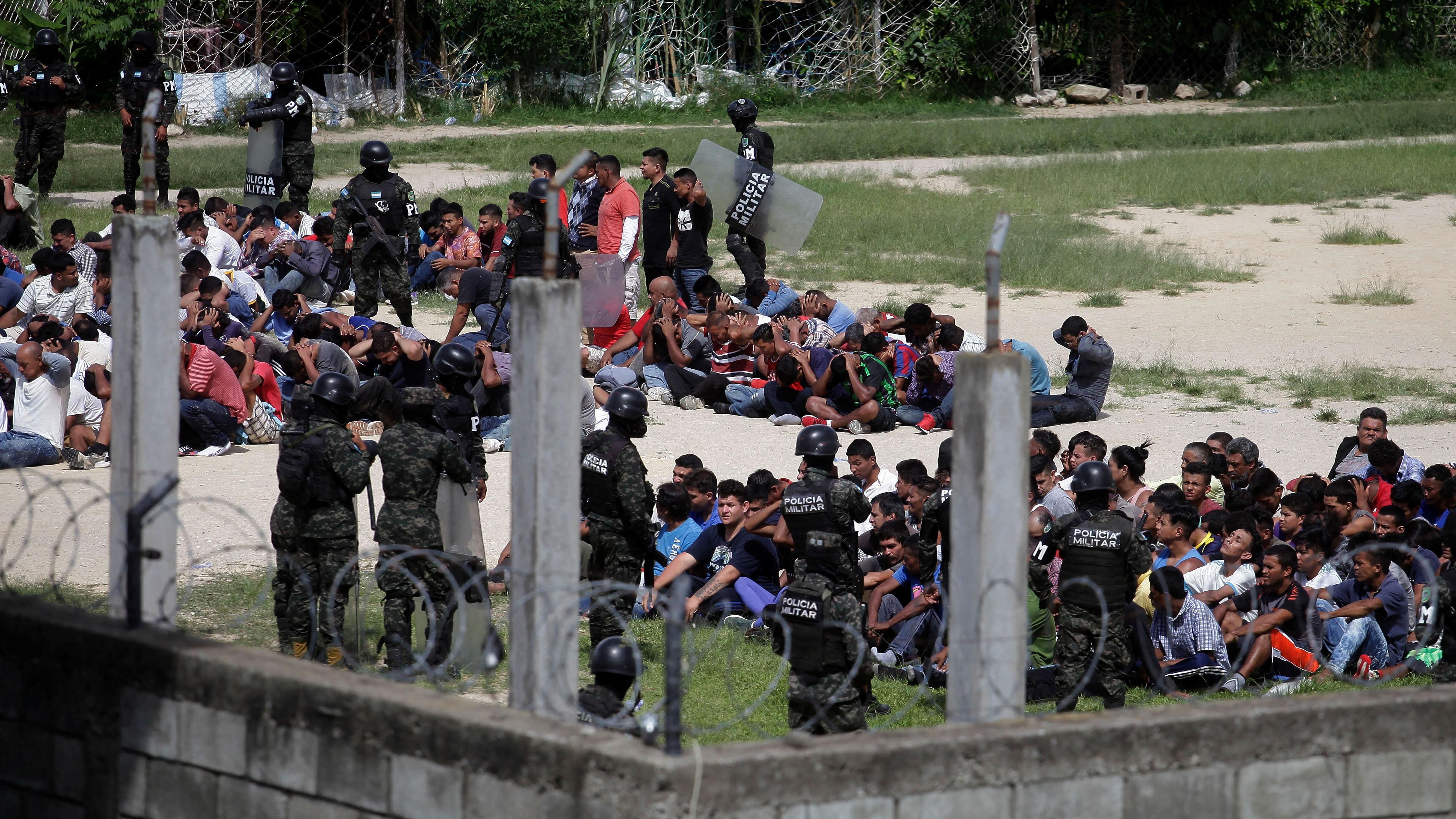
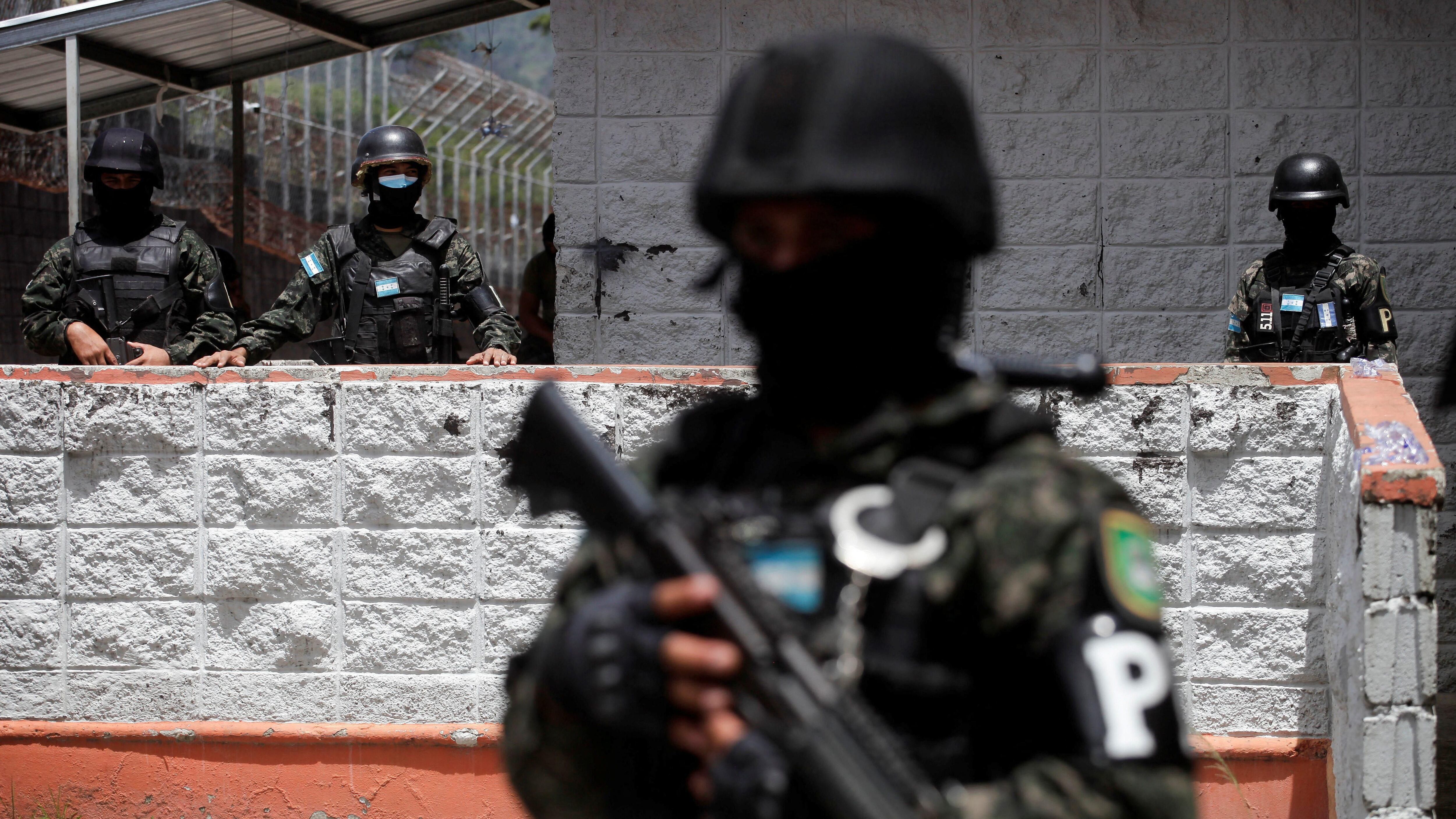
Although Bukele has drastically reduced crime, reducing the number of homicides, he has been criticized for the lack of a plan for the future, beyond emergency measures.
Thus, analysts consulted by BBC Mundo assure that the great challenge in Honduras is in attack crime at the root.
To this end, measures such as the curfew or the state of exception will only work if deeper policies are carried out such as the fight against corruption, the reduction of inequality and poverty, and the recomposition of institutions.
Drafting
BBC News World
Source: Elcomercio
I am Jack Morton and I work in 24 News Recorder. I mostly cover world news and I have also authored 24 news recorder. I find this work highly interesting and it allows me to keep up with current events happening around the world.

:quality(75)/cloudfront-us-east-1.images.arcpublishing.com/elcomercio/A2BU2HB3L5CULDYMPOG3WLP6GM.jpg)

:quality(75)/cloudfront-us-east-1.images.arcpublishing.com/elcomercio/HHCIMU4REVBN5HQQ2E6WXSYNHA.jpg)

:quality(75)/cloudfront-us-east-1.images.arcpublishing.com/elcomercio/TS2K5R2JZVGDLLVL5E4D4BP3YY.jpg)
:quality(75)/cloudfront-us-east-1.images.arcpublishing.com/elcomercio/UBIE3NLDYJFCRBIVN226M76A5Q.jpg)
